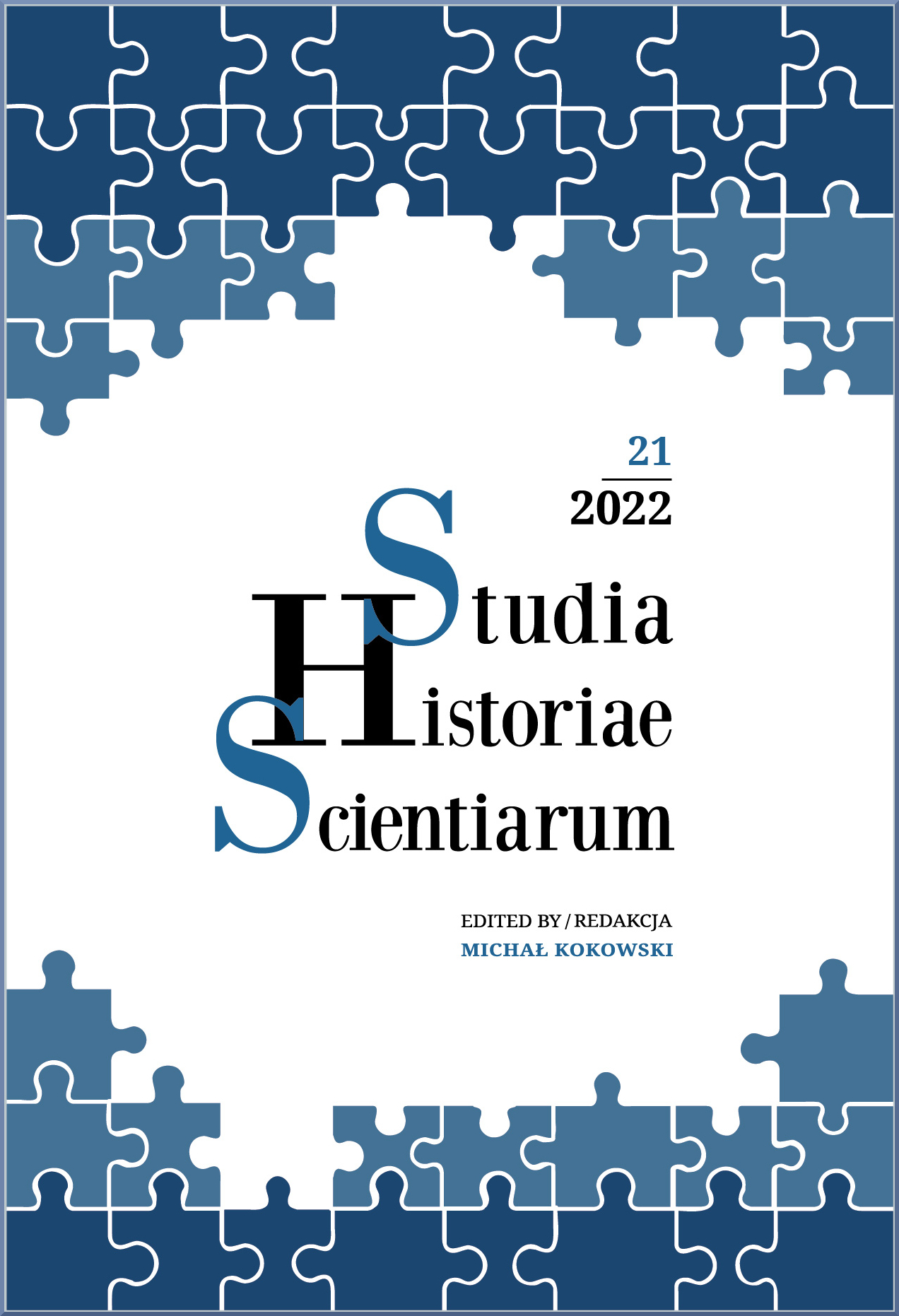Boris Hessen (1893‒1936), „Społeczne i ekonomiczne korzenie Principiów Newtona” i paradoksalna historia historiografii nauki
Boris Hessen (1893‒1936), “The Social and Economic Roots of Newton’s Principia” and the Paradoxical History of the Historiography of Science
Author(s): Michał KokowskiSubject(s): Local History / Microhistory, History of Education
Published by: Wydawnictwo Uniwersytetu Jagiellońskiego
Keywords: science-of-science; Marxian studies of science social history of science; (British) Society for Freedom in Science Harvard group of J.B. Conant on General Education in Science; Bernalism; reception; r
Summary/Abstract: Artykuł komentuje słynny referat Borisa Hessena „Społeczne i ekonomiczne korzenie Principiów Newtona” przedstawiony podczas II Międzynarodowego Kongresu Historii Nauki i Techniki w Londynie w 1931 r. Komentarz ten czyniony jest w świetle rozważań z metodologii historiografii nauki, w tym autorskich idei hermeneutyki badawczej i hermeneutyki badawczej historiografii nauki, biografii Borisa Hessena, historii historiografii nauki, historii nauki oraz historii naukoznawstwa. Artykuł syntetycznie przedstawia hermeneutykę badawczą Hessena i wskazuje jej zasadnicze wady. Opisuje recepcję referatu Hessena na Zachodzie: zarówno szerzej znaną pozytywną recepcję (bernaliści i ich następcy, m.in. zwolennicy marksistowskich badań nauki i społecznej historii nauki), jak i o wiele mniej znaną negatywną recepcję (członkowie (Brytyjskiego) Towarzystwa na rzecz Wolności w Nauce, członkowie Harvardzkiej grupy J.B. Conanta Kształcenia Ogólnego z Zakresu Nauk Empirycznych).Przedstawia także zmienne losy recepcji myśli Hessena w ZSSR i Rosji w latach 1930–2020.Wskazuje również różne historiograficzne mity związane z „Borisem Hessenem”, w tym mit jakoby polskie naukoznawstwo powstało później lub w tym samym czasie co rosyjskie naukovedenie. Ułomność hermeneutyki badawczej Hessena, z jednej strony, i recepcja jego poglądów na Zachodzie oraz w ZSSR i w Rosji od lat 30. XX wieku do lat 20. XXI wieku, w tym mity historiograficzne związane z Hessenem, z drugiej strony, pokazują jak paradoksalna może być historia historiografii nauki i dowodzą konieczności pielęgnowania zdolności krytycznego myślenia wśród badaczy interpretujących naukę (historyków nauki, filozofów nauki, socjologów wiedzy naukowej itp.).The article comments on the famous paper by Boris Hessen “The Social and Economic Roots of Newton’s Principia” presented at the Second International Congress on the History of Science and Technology in London in 1931.The comments are made in the light of considerations on the methodology of the historiography of science, including the author’s ideas of research hermeneutics and the research hermeneutics of the historiography of science, the biography of Boris Hessen, the history of scientific historiography, the history of science and the history of science-of-science.The article synthetically presents Hessen’s research hermeneutics and points to its fundamental disadvantages. It describes the reception of Hessen’s paper in the West: both the more widely known positive reception (of Bernalists and their successors, including supporters of Marxist studies of science and the social history of science), and the much less known negative reception (members of the (British) Society for Freedom in Science, members of the Harvard group of J. B. Conant of General Education in Science).The article also presents the changing fate of the reception of Hessen’s thoughts in the USSR and Russia in the years 1930–2020.Additionally, it indicates various historiographic myths related to “Boris Hessen”, including the myth that the Polish science-of-science (Polish: naukoznawstwo) emerged later or at the same time as Russian science-of-science (Russian: науковедение, naukovedenie).The defectiveness of Hessen’s research hermeneutics on the one hand, and on the other hand the reception of his views in the West and in the USSR and Russia from the 1930s to the 2020s, including the various historiographic myths related to Hessen, show how paradoxical the history of the historiography of science can be, and demonstrate the need to cultivate the skills of critical thinking among researchers interpreting science (i.e. historians of science, philosophers of science, sociologists of scientific knowledge, etc.).
Journal: Studia Historiae Scientiarum
- Issue Year: 2022
- Issue No: 21
- Page Range: 555-610
- Page Count: 56
- Language: Polish

